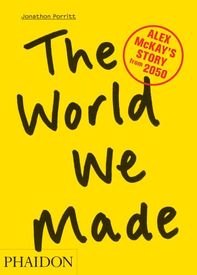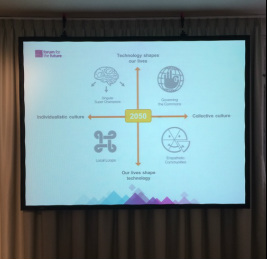 Photo credit IEMA: Preparing for the Perfect Storm
Photo credit IEMA: Preparing for the Perfect Storm This is, of course, hugely relevant for education providers and young people too. How do we ensure we provide appropriate career pathways and training opportunities for new entrants to the workforce? IPPR research published in the summer highlighted a grave mismatch between what young people are training for and the types of jobs available- with 868,000 16 to 24-year-olds out of work. Somehow, we must connect the dots.
Earlier this month, IEMA published a position statement calling for collaborative action between business, government and the education sector to address this critical issue. The document calls for sustainability skills to be 'mainstreamed'- and for the incoming government in 2015 to develop a sustainability skills strategy as a matter of urgency. Vocational skills essential for the new green economy must be consciously developed alongside strategic and organisational capabilities essential to sustainability literacy. Crucially, this applies to the existing workforce just as much as it does to the next generation- we cannot afford to wait.
The IEMA campaign is geared primarily towards addressing the skills gap faced by industry- but highlights that this cannot be done without collaborative systemic change and substantial partnership work. The report emphasises the importance of systems thinking in transitioning to a sustainable economy- and this for me was one of the most significant points. Systems thinking, the ability to consider how processes interact within a whole, in this context implies 'appreciating that our current economy cannot work in the long-term and reframing the systems within it to deliver one that is capable of equitable growth within the natural limits of the environment.' This concept is poorly understood in modern industry and teaching of it in schools, universities and further education establishments is rare. IEMA makes a particular plea for business schools and MBAs to ensure that systems thinking is a core part of their teaching and that it is consciously linked to sustainability challenges and opportunities faced by business.
This campaign is ambitious and timely. It has the potential to galvanise the change that is needed. The recognition that technical 'green' skills and leadership competencies must be upgraded alongside an increased ability to think systemically is vital if we are to transition to a sustainable economy. Equally crucial is the call for government, business and education providers to work together on this- an investment in skills that will benefit us all.
by Jenny Ekelund
| | |



 RSS Feed
RSS Feed